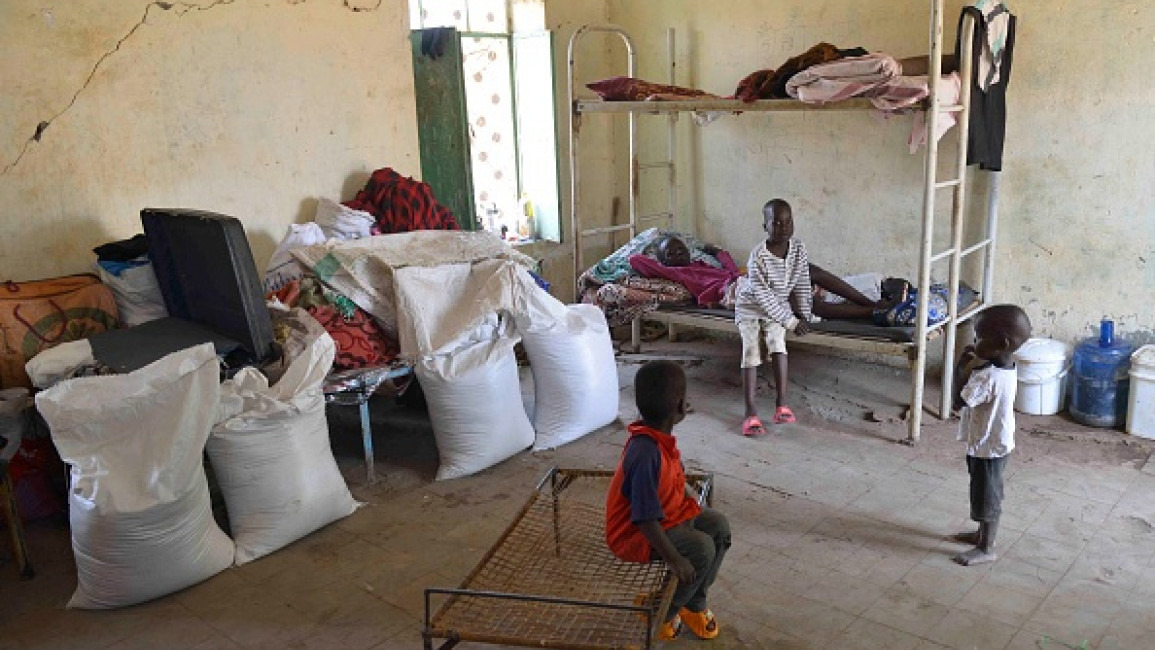One child killed, wounded every hour since Sudan fighting began: UNICEF official
One child is killed or injured every hour in Sudan, a U.N. official has said, painting a bleak picture for the situation in the country where fighting continues between rival military factions.
Eden Worsornu, director of operations for the U.N. humanitarian agency, and Ted Chaiban, deputy executive director of the U.N. children’s agency UNICEF, who just returned from Sudan, painted a dire picture of devastation and upheaval in Sudan, with no peace talks in sight.
The conflict in Sudan has left 24 million people — half the country’s population — in need of food and other assistance, but only 2.5 million have received aid because of vicious fighting and a lack of funding, the two officials said Friday.
Worsornu said hotspots, such as the capital of Khartoum and the southern Kordofan and western Darfur regions, "have been shattered by relentless violence." Nearly 4 million people have fled the fighting, facing scorching heat up to 48 degrees Celsius (118 F), and threats of attacks, sexual violence and death, she added.
The now nearly four-month conflict has killed more than 3,000 people and wounded over 6,000 others, according to the last government figures, released in June. But the true tally is likely much higher, doctors and activists say.
"Before the war erupted on the 15th of April, Sudan was already grappling with a humanitarian crisis," Chaiban said. "Now, more than 110 days of brutal fighting have turned the crisis into a catastrophe, threatening the lives and futures of a generation of children and young people who make up over 70% of the population."
"At least 435 children have been reported killed in the conflict, and at least 2,025 children injured. That is an average of one child killed or injured every hour since the war began. We know that this is an underestimate, and the true toll is likely to be far higher," Chaiban said.
The experience suffered by the majority of Sudanese is the loss of homes, belongings, jobs, businesses, and income, and they are grappling with the difficulties of displacement #KeepEyesOnSudan https://t.co/9z9fHtWigb
— The New Arab (@The_NewArab) August 2, 2023
The fighting pits forces loyal to top army Gen. Abdel-Fattah Burhan against his rival, Gen. Mohammed Hamdan Dagalo, who commands the paramilitary Rapid Support Forces.
Worsornu and Chaiban, who previously worked in Sudan, said ethnic violence has returned to Darfur, where attacks two decades ago by the notorious Janjaweed Arab militias on people of Central or East African ethnicities became synonymous with genocide and war crimes.
Now "it is worse than it was in 2004," Worsornu said.
The statistics are grim: 24 million people need food and other humanitarian aid, including 14 million children, a number equivalent to every single child in Colombia, France, Germany and Thailand, Chaiban revealed.
The U.N. has been trying to get aid to 18 million Sudanese, but 93 of its humanitarian partners were able to reach only 2.5 million between April and June because of the severe fighting and difficulties getting to those in need.
"Right now, Sudan is one of the most dangerous places to operate," Chaiban said. "So, to do 2.5 million people, 780 trucks, mobilizing and negotiating to get in, has been no small feat."
Worsornu revealed that 18 aid workers had been killed so far in Sudan.
"Humanitarian aid is just a band aid. Basic social services have completely broken down, banking systems do not work and schools have collapsed," she added.
After the conflict erupted, the U.N. increased its humanitarian appeal to $2.6 billion. Woorsornu said the appeal had received just $625 million, barely 25%. "We cannot do more without funding."
Chaiban said 3 million children under age 5 are malnourished, "with 700,000 at risk of severe acute malnutrition and mortality," adding that UNICEF has gotten life-saving treatment to 107,000, but that is only about 15% of those who need it.
Sudan borders seven nations — Central African Republic, Chad, Ethiopia, Eritrea, South Sudan, Libya and Egypt — and most of them would be vulnerable to upheaval if the conflict should spill over.
"We need to be careful that if the situation in Sudan is not contained, it will have a devastating impact on the region," Worsornu said.
(The New Arab contributed to this report)



